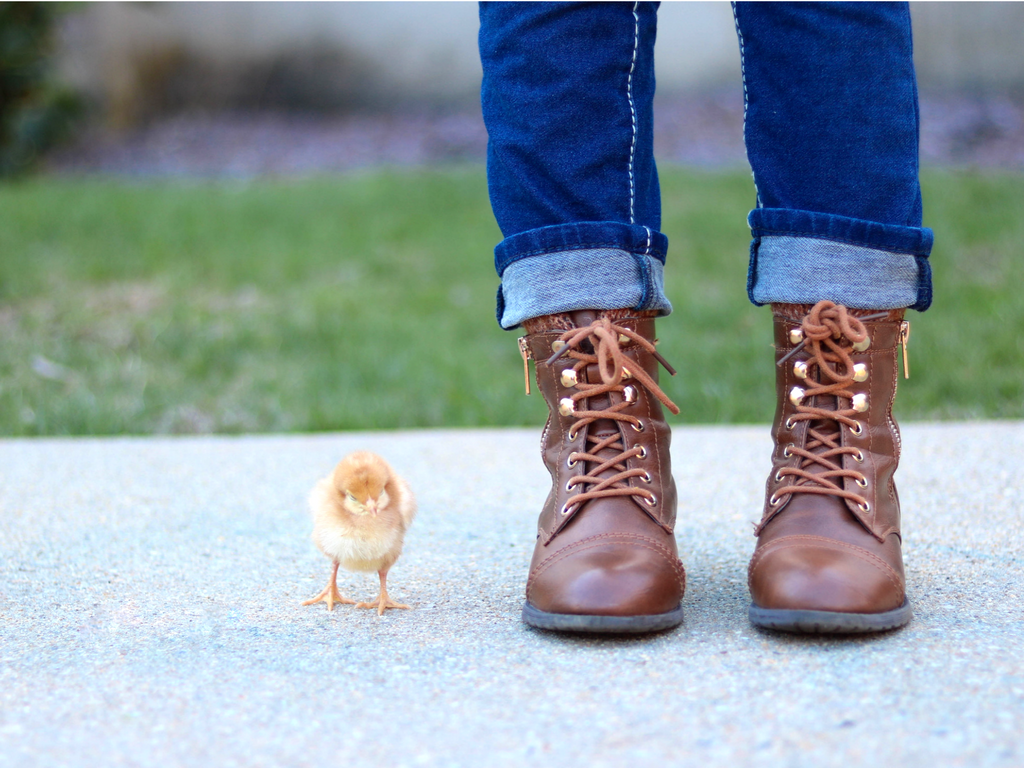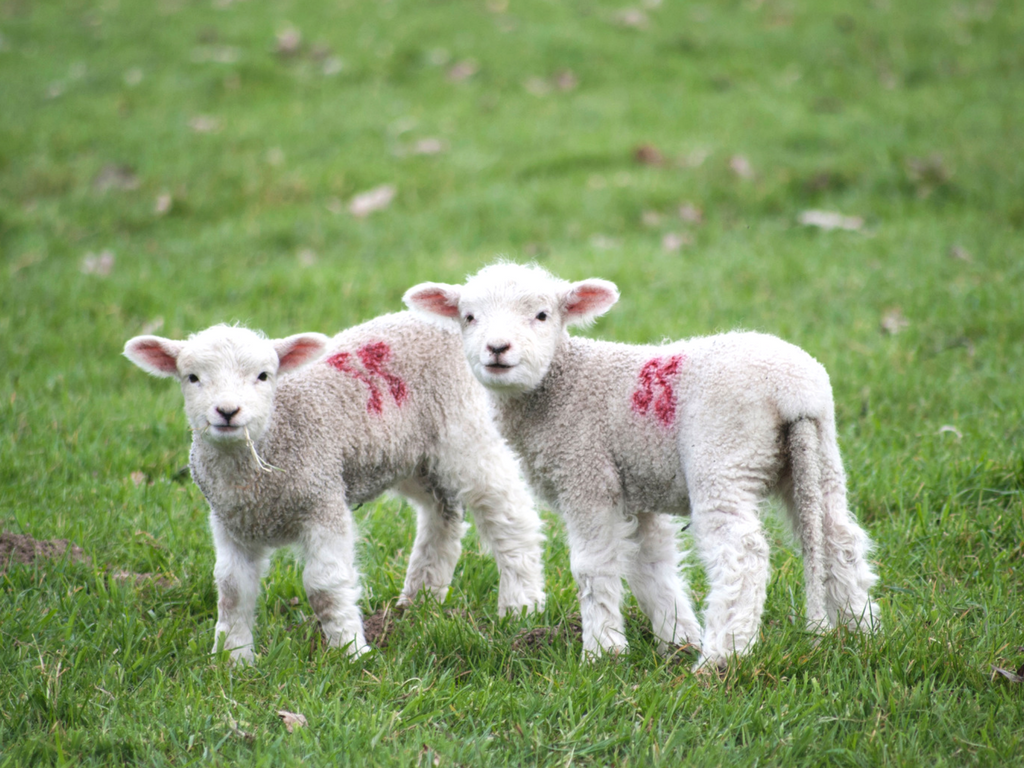Is being a vegetarian the right answer?
May 01, 2018 1 Comment
Last week I went to a dinner party. There were twelve of us all sitting around the table sharing jokes while sipping wine. Most of us knew each other well, although there were a few couples I had not met before. We had all brought a plate of food to share, and we started passing them around the table, endless arms crossing over each other as we began to fill up our plates. Eventually, a keen observer at the dinner party who didn’t know me well asked why I was missing out on the delicious lamb curry they had made.
And there it was, the question that always gets brought up - “Are you a vegetarian?” I prepare myself for the barrage of questions: “Have you been vegetarian your whole life?” “Do you miss the taste of meat?” “Are you low in iron?” “Aren’t you hungry all the time?”
The number one question that I always (and I mean, always) get asked is “why?” Why did I become a vegetarian? I think natural curiosity gets the better of people and they want to know why I made a lifestyle choice that can be perceived as quite limiting. The truth of the matter is that becoming a vegetarian wasn’t an easy decision, nor was it something I rushed into. My journey was lengthy, challenging, and somewhat confronting.
THE JOURNEY
I started thinking about meat as a real animal product about five or six years ago. In a previous job I worked alongside food safety regulators of the meat industry - discussing how an animal should be killed and cut apart in an abattoir was normal office conversation. Having these regular discussions about killing animals for our culinary enjoyment made it harder to maintain the psychological disconnect between the lamb chop on my plate and the knowledge that it had been a living and breathing animal. That mince in my bolognaise or bacon in my BLT once was the muscle in a leg or the backside of an animal that lived in a field; the same animal that I would consider cute and even want to pat. I had very real awareness of the meaning of “paddock to plate”. Which is silly right? We all know where our meat comes from, but for many years I had avoided thinking about it in detail, and even compartmentalised ‘eating-animals’ as being separate to ‘all-the-other-animals-I-would-NEVER-eat’.

The conversations
Following this realisation, my meat-eating husband and I had some rather philosophical conversations around animals and eating them. Why did we eat them? Why do we think it’s okay to eat a cow, but eating a dog (like in the controversial dog meat festival of Yulin, China) was certainly not okay? This process of separating animals out into an eating-animals and animals-not-to-be-eaten dichotomy was interesting to me, and it was particularly interesting to discover I had done it my whole life.
The conversations continued over weeks; could I slaughter a cow? If not, why not? Why do I pay someone else to do it for me?
My husband and I continued our self-questioning over endless coffees (and even a few meaty meals!), discussing whether animals suffered as a result for us to enjoy eating them. Weren’t they going to die anyway at some point?
I even considered the biology of cows, sheep and pigs. Aren’t they a bit stupid? Surely they couldn’t experience suffering in the way we humans can? Unfortunately, I discovered that farm animals with well-developed central nervous systems feel pain in the same way we do, and even experience similar emotional stress. Their pain receptors operate just like ours; they feel heat, cold and physical discomfort. Did they feel pain in the abattoir? Even if the animals were killed humanely, did I really want to support an industry that knowingly allows animals to suffer during other processes of their industry, like transport (via trucks), live export, and rearing?
Just like us, animals clearly want to live. What gives me the right to (indirectly) take that life, just to satisfy taste or convenience? Was this morally and ethically okay by me?
So many thoughts were swirling through my mind. My lifestyle decisions were being challenged, forcing me to find a reason to justify eating meat.
The real reason I ate meat
Truthfully, the real reason I had eaten meat my whole life was because it was something I was raised to do. It’s no fault of my parents; it’s what most Australian (and Italian) families do. It’s how we learnt to cook the staple household meals - spaghetti bolognaise, steak and vegetables, breakfast bacon and eggs and even green Thai chicken curry. Just like a Sunday roast, eating meat is so ingrained in our Australian tradition; it’s what brings families together at the end of a long week. It’s part of our cultural and social tapestry.

One of the main reasons why it probably took me so long to make a definite decision to become vegetarian was because I wanted to avoid the stigma associated with being one. I didn’t believe it could be socially acceptable. My family and friends ate meat. In fact, there was no one in my social group that didn’t eat meat. A barbeque on the weekend was what we did, piling up loads of steaks, sausages and kebabs on the steaming barbeque, which we devoured happily.
Other thoughts came to mind: what about the health benefits from meat; could I really obtain all of my necessary nutrients from a vegetarian diet? I wasn’t sure if this was possible.
Where I am now
After months of consideration I decided that personally, for me, I couldn’t continue justifying eating meat based on tradition, societal pressures, or even for the supposed ‘health benefits’. Luckily for me my husband’s masculinity wasn’t caught up in whether or not he fitted the mould of a meat-eating alpha male, and in fact he became vegetarian just a few weeks before me. The transition for both of us wasn’t actually hard in the least, mainly because we had been reducing the amount of meat in our diet for many months before. We adjusted, experimented, and our culinary skills increased. We learnt about proper plant-based diets that were rich in iron, vitamins, proteins and healthy fats. Three years on we are still learning new vegetarian meals and are (blood test and doctor certified) healthy. Understanding that B12 is hard to come by, we still continue to eat eggs and dairy, although we know that there are significant issues with both industries and try to minimise our consumption.
My journey to becoming a vegetarian was a well-thought-out, personal journey. I cast no judgement on meat-eaters (I was one for 30 plus years) and I’m not offended if you devour a rack of ribs in front of me. Yeah, I do find it a little gross - but it’s your body, your ethics, and ultimately your decision. Is my decision the best decision? Probably not to everyone, but what I think is important is that I have made an informed decision. I considered the reasons why I used to eat meat, assessed whether it was ethically ok by me, and made a judgement call.
I would love to know your thoughts – do you eat meat? Are you vegetarian? Vegan? Something in-between? How did you find your transition? Was everyone accepting? No judgement here…
Further reading:
13 Veggie Recipes to Make Meat Eaters Envious
1 Response
Leave a comment
Also in Anna's journal

Work life balance: does it really exist?
October 06, 2020 8 Comments
Sign up to get the latest on sales, new releases and more…
CUSTOMER CARE




Mel
March 28, 2019
Hi Anna! I think I had a similar journey into vegetarianism as you … same thoughts – I am such an animal lover but the where the meat on my plate came from was just an inconvenient truth I didnt want to look at. Around 8 years ago I couldn’t turn a blind eye anymore – even the sight of a stock truck stuff with animals excreting fear hormones of terror on the way to their fate breaks my heart every time (how is this acceptable?). I think if most people got to see the process of an animal’s life right up to the end where it lands in the supermarket fridge, many would think twice. Even if they had no empathy for animals, the fact that you are eating meat that has had cortisol and other stress hormone coursing through it’s body can’t make for very healthy meat. Like you I dont pass judgement, I do what’s right for me but I think it is so important that people know where their animal products come from. Wonderful article! Thank you :) PS. the transition was no effort at all for me … so much delicious plant-based food to try!